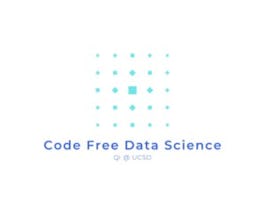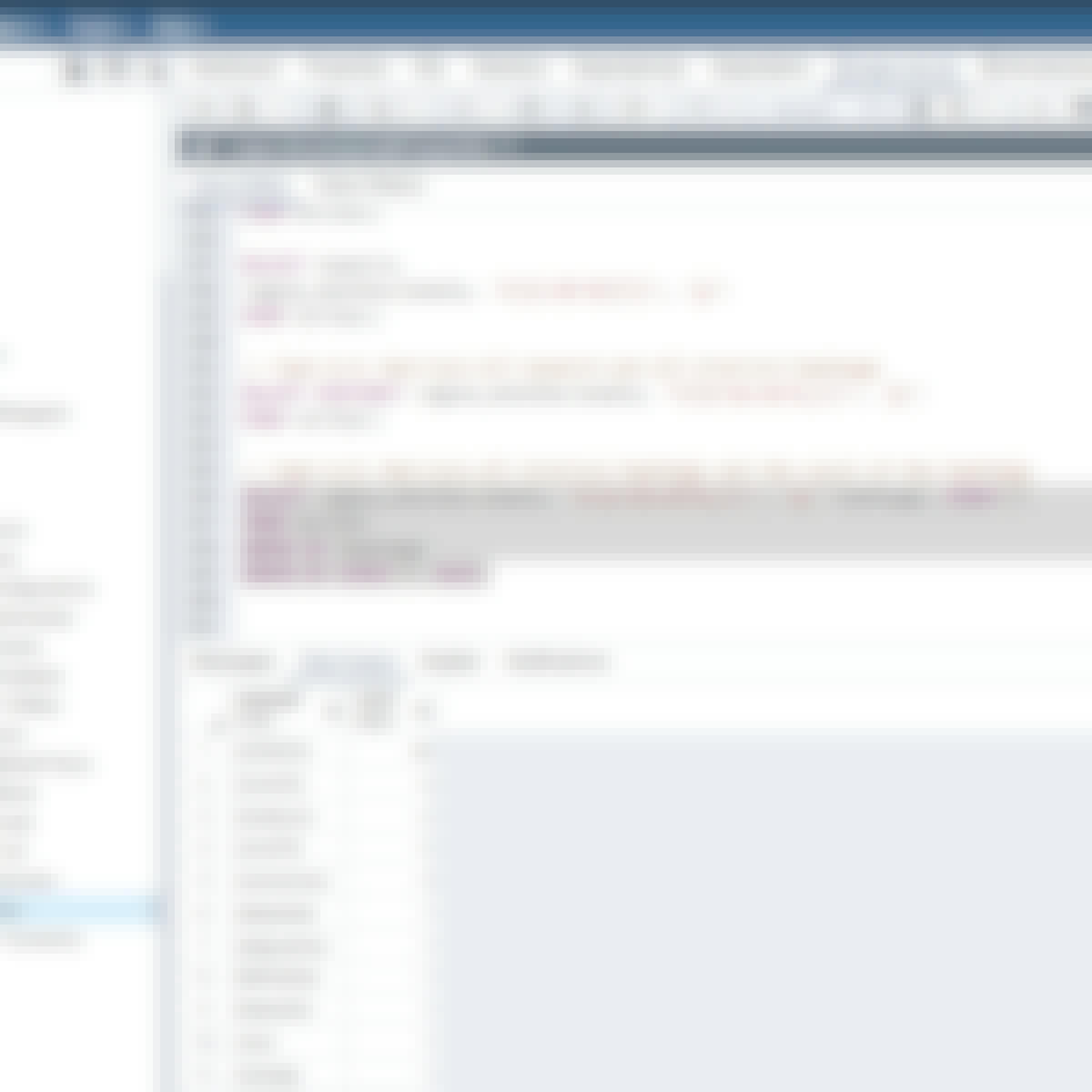Filter by
SubjectRequired
LanguageRequired
The language used throughout the course, in both instruction and assessments.
Learning ProductRequired
LevelRequired
DurationRequired
SkillsRequired
SubtitlesRequired
EducatorRequired
Explore the SQL Server Course Catalog


University of California San Diego
Skills you'll gain: Predictive Modeling, Data Manipulation, Predictive Analytics, Big Data, Data Mining, Data Transformation, Data Analysis, Data Science, Data-Driven Decision-Making, Unsupervised Learning, Statistical Analysis, Analytics, Software Installation


Universidad Nacional Autónoma de México
Skills you'll gain: Data Warehousing, Extract, Transform, Load, Business Intelligence, Data Mining, Big Data, Predictive Analytics, Analytics, Data Modeling, MySQL, Business Analytics, Apache Hadoop, Data Integration, Star Schema, Unstructured Data, Database Design, SQL, Data Transformation


Universidad Austral
Skills you'll gain: Server Side, Node.JS, Back-End Web Development, Restful API, Web Development, MongoDB, Application Deployment, OAuth, Web Servers, Application Programming Interface (API), Web Applications, Authentications, NoSQL, Platform As A Service (PaaS), Authorization (Computing), JSON
 Status: AI skills
Status: AI skills
Google Cloud
Skills you'll gain: Data Storytelling, Data Governance, Data Visualization, Data Management, Data Pipelines, Data Visualization Software, Dashboard, Data Lakes, Data Architecture, Cloud Infrastructure, Generative AI, Data Cleansing, Data Transformation, Cloud Computing, Data Access, Cloud Storage, Metadata Management, Data Ethics, Data Analysis, Google Cloud Platform

Skills you'll gain: Apache Spark, Data Warehousing, Extract, Transform, Load, IBM DB2, IBM Cognos Analytics, Big Data, Databases, PostgreSQL, NoSQL, Data Architecture, Data Pipelines, Applied Machine Learning, MongoDB, MySQL, Data Analysis, Dashboard, Predictive Modeling, Software Technical Review


Yonsei University
Skills you'll gain: Apache Spark, Big Data, SPSS, Analytics, Real Time Data, Apache Hadoop, Data Processing, Business Analytics, Statistical Analysis, Data Analysis, Market Data, Business Strategies, Distributed Computing, Scalability


Johns Hopkins University
Skills you'll gain: Bioinformatics, Big Data, R Programming, Statistical Programming, Data Analysis, Data Manipulation, Data Structures, Software Installation, Data Import/Export, Object Oriented Programming (OOP)


Coursera Project Network
Skills you'll gain: SQL, PostgreSQL, Query Languages, Database Management Systems, Text Mining, Database Management, Unstructured Data

Skills you'll gain: Unified Modeling Language, Visual Basic (Programming Language), System Software, Databases, Relational Databases, Algorithms, Computer Architecture, Network Security, Computer Hardware, SQL, Computer Science, Development Environment, Data Structures, Object Oriented Programming (OOP), Object Oriented Design, Data Modeling, Computer Networking, Program Development, Microsoft Development Tools, Programming Principles


Coursera Project Network
Skills you'll gain: Network Protocols, TCP/IP, General Networking, Network Security, Network Analysis, Web Servers, Linux, Software Installation


Georgia Institute of Technology
Skills you'll gain: Cloud Applications, Cloud Development, Cloud-Native Computing, Software-Defined Networking, Cloud Computing, Cloud Infrastructure, Distributed Computing, Application Development, Cloud Management, Virtualization, Virtual Machines, Cloud Computing Architecture, Network Performance Management, Data Store, Software Systems, Network Architecture, Multi-Tenant Cloud Environments, Network Infrastructure, Computer Networking, Data Centers

Skills you'll gain: Application Deployment, Kubernetes, Cloud Applications, Google Cloud Platform, Cloud Management, Databases, Containerization, Data Access, Cloud Infrastructure, PostgreSQL, SQL
SQL Server learners also search
In summary, here are 10 of our most popular sql server courses
- Code Free Data Science: University of California San Diego
- Business intelligence and data warehousing: Universidad Nacional Autónoma de México
- Desarrollo del lado servidor: NodeJS, Express y MongoDB: Universidad Austral
- Google Cloud Data Analytics: Google Cloud
- Data Engineering Capstone Project: IBM
- Big Data Emerging Technologies: Yonsei University
- Bioconductor for Genomic Data Science: Johns Hopkins University
- Introduction to Regular Expressions in SQL: Coursera Project Network
- Introduction to Computer Programming with Visual Basic: LearnQuest
- Wireshark for Beginners: Capture Packets: Coursera Project Network












